
Writer
Anthology film made as an act of protest against Hungarian government of Viktor Orban.

Director
Anthology film made as an act of protest against Hungarian government of Viktor Orban.

Self
The Midnight Sun Film Festival is held every June in the Finnish village of Sodankylä beyond the arctic circle — where the sun never sets. Founded by Aki and Mika Kaurismäki along with Anssi Mänttäri and Peter von Bagh in 1985, the festival has played host to an international who’s who of directors and each day begins with a two-hour discussion. To mark the festival’s silver anniversary, festival director Peter von Bagh edited together highlights from these dialogues to create an epic four-part choral history of cinema drawn from the anecdotes, insights, and wisdom of his all-star cast: Coppola, Fuller, Forman, Chabrol, Corman, Demy, Kieslowski, Kiarostami, Varda, Oliveira, Erice, Rouch, Gilliam, Jancso — and 64 more. Ranging across innumerable topics (war, censorship, movie stars, formative influences, America, neorealism) these voices, many now passed away, engage in a personal dialogue across the years that’s by turns charming, profound, hilarious and moving.
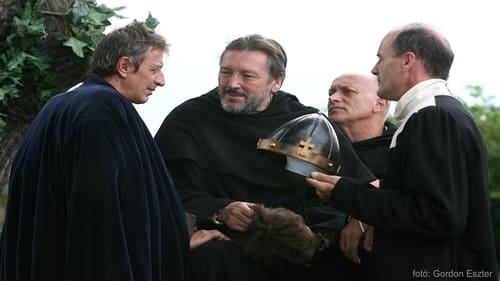
Screenplay
Concerning the Mátyás era in Hungarian history, during the reign of Matthias Corvinus (1443–1490), the film focuses on three eras of the king's life: the young Mátyás fights for the throne, the older Mátyás as king, and the fate of the royal crown and the royal heir after his death.

Director
Concerning the Mátyás era in Hungarian history, during the reign of Matthias Corvinus (1443–1490), the film focuses on three eras of the king's life: the young Mátyás fights for the throne, the older Mátyás as king, and the fate of the royal crown and the royal heir after his death.
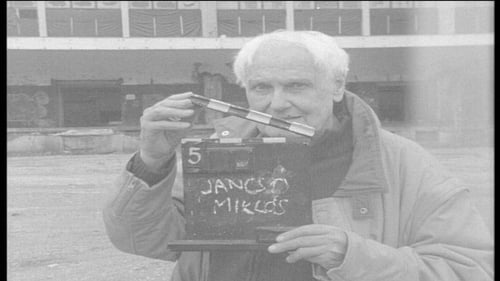
Self
Reconstructions of unrealized Hungarian films in cooperation with the greatest Hungarian film directors.

Himself
A documentary about the Democratic Opposition of socialist Hungary.

Himself / Marcus Aurelius
Jancsó’s farce, similar to the previous ones, is about our time and about death. Pepe marries into a family of mafiosi, with the father-in-law rolling in money. In a joint venture they establish the first Hungarian Prison Limited company, where there is a menu, the prisoners are residents, and they furnish the place of execution for those volunteering to execute themselves. It turns out that the first voluntary hanging should be demonstrated on Pepe. In 180 AD Emperor Marcus Aurelius is dying in Vindobona, being fed with blades of hay by uncle Miki himself, and his son Kornél Mundruczó. Kapa provides for communication: he insists on telling lies, lies and again lies. Furthermore, there are several to die and to revive, to win and to lose, and Melancholy Béla is still alive.

Writer
Jancsó’s farce, similar to the previous ones, is about our time and about death. Pepe marries into a family of mafiosi, with the father-in-law rolling in money. In a joint venture they establish the first Hungarian Prison Limited company, where there is a menu, the prisoners are residents, and they furnish the place of execution for those volunteering to execute themselves. It turns out that the first voluntary hanging should be demonstrated on Pepe. In 180 AD Emperor Marcus Aurelius is dying in Vindobona, being fed with blades of hay by uncle Miki himself, and his son Kornél Mundruczó. Kapa provides for communication: he insists on telling lies, lies and again lies. Furthermore, there are several to die and to revive, to win and to lose, and Melancholy Béla is still alive.

Director
Jancsó’s farce, similar to the previous ones, is about our time and about death. Pepe marries into a family of mafiosi, with the father-in-law rolling in money. In a joint venture they establish the first Hungarian Prison Limited company, where there is a menu, the prisoners are residents, and they furnish the place of execution for those volunteering to execute themselves. It turns out that the first voluntary hanging should be demonstrated on Pepe. In 180 AD Emperor Marcus Aurelius is dying in Vindobona, being fed with blades of hay by uncle Miki himself, and his son Kornél Mundruczó. Kapa provides for communication: he insists on telling lies, lies and again lies. Furthermore, there are several to die and to revive, to win and to lose, and Melancholy Béla is still alive.

Writer
By the notes of Fiáth Pompeiusz, the one-time friend of Kapa and Pepe, Professor Szirtes has solved the secret of the time machine, and he realizes the invention relying on "special" H2O. Kapa and Pepe shall return by it into the past in order to set time right, which is out of joint, that is, to correct history, to save King Louis II, and prevent the Mohács Disaster. Pepe yields to the not too tender persuasion to enter upon the great journey through time, dies and revives, and they arrive at the battlefield of Mohács in time. Kapa films the events. The Turks win and cut off the king’s, Pepe’s, head, still the Hungarians dictate the peace treaty. Kapa and Pepe want to return, they fill the time machine up with water from the well, yet it won’t start. Even so Kapa and Pepe hover over Budapest and quarrel.

Director
By the notes of Fiáth Pompeiusz, the one-time friend of Kapa and Pepe, Professor Szirtes has solved the secret of the time machine, and he realizes the invention relying on "special" H2O. Kapa and Pepe shall return by it into the past in order to set time right, which is out of joint, that is, to correct history, to save King Louis II, and prevent the Mohács Disaster. Pepe yields to the not too tender persuasion to enter upon the great journey through time, dies and revives, and they arrive at the battlefield of Mohács in time. Kapa films the events. The Turks win and cut off the king’s, Pepe’s, head, still the Hungarians dictate the peace treaty. Kapa and Pepe want to return, they fill the time machine up with water from the well, yet it won’t start. Even so Kapa and Pepe hover over Budapest and quarrel.

Himself
This time, Kapa and Pepe are first of all prisoners of war – and convicts taken to forced labor service, Jews, Hungarian soldiers, German soldiers. Once they are to be executed, then again they are to perform executions. The film tells in spectacular episodes about the fact that in the past more than one century and a half we kept marching from war to war; occupation and liberation turned out to be indifferent, and why couldn’t the Jews execute the SS-guys? Our heroes hover about dilapidated barracks, then again on the bridges of the capital they guess whose satellites or eternal friends for all times we might be just now. In the cupboard, among the preserved fruit bottles, Stalin is still hiding. The authors of the film are cited before court, then in a showcase hospital they are waiting for the end to come. A Soviet soldier-maid closes the film with a Péter Nádas-quote.

Writer
This time, Kapa and Pepe are first of all prisoners of war – and convicts taken to forced labor service, Jews, Hungarian soldiers, German soldiers. Once they are to be executed, then again they are to perform executions. The film tells in spectacular episodes about the fact that in the past more than one century and a half we kept marching from war to war; occupation and liberation turned out to be indifferent, and why couldn’t the Jews execute the SS-guys? Our heroes hover about dilapidated barracks, then again on the bridges of the capital they guess whose satellites or eternal friends for all times we might be just now. In the cupboard, among the preserved fruit bottles, Stalin is still hiding. The authors of the film are cited before court, then in a showcase hospital they are waiting for the end to come. A Soviet soldier-maid closes the film with a Péter Nádas-quote.

Director
This time, Kapa and Pepe are first of all prisoners of war – and convicts taken to forced labor service, Jews, Hungarian soldiers, German soldiers. Once they are to be executed, then again they are to perform executions. The film tells in spectacular episodes about the fact that in the past more than one century and a half we kept marching from war to war; occupation and liberation turned out to be indifferent, and why couldn’t the Jews execute the SS-guys? Our heroes hover about dilapidated barracks, then again on the bridges of the capital they guess whose satellites or eternal friends for all times we might be just now. In the cupboard, among the preserved fruit bottles, Stalin is still hiding. The authors of the film are cited before court, then in a showcase hospital they are waiting for the end to come. A Soviet soldier-maid closes the film with a Péter Nádas-quote.


Himself
A girl is on the skids because of love. A shorttempered and passionate young man falls in love with the girl. His emotions are so powerful that he is prepared to surrender his whole personality. The boy has a good friend, who is not sure whether their bond is friendly or homosexual. Before the girl arrived, the friendship was close, but now she has thrown a spanner in the works. How do they react to the new situation?
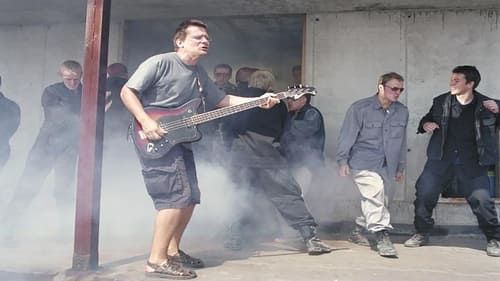
Himself
Waiters’ competition at Heroes’ Square in the late thirties. Dressed as waiters, Kapa and Pepe awake in the bronze chariot of the millennial sculpture group. They drive along the Danube promenade, and on the concrete reinforcement of the demolished Budapest rondella hotel they get involved in a showdown of political background. In the burnt-down Sports Hall the waiters train for a last supper, Pepe and Kapa run around the big laid table with trays in their hands. While doing so, Pepe keeps crying out: "I am the best one, I am the most beautiful one, I am the king, I am the god..." Sitting in a boat on the Danube, a ship goes past them, and the Niagara falls, majestic and breathtaking, resound in their ears. On each passing away something new will come to life – as rapped by Sub Bass Monster.

Writer
Waiters’ competition at Heroes’ Square in the late thirties. Dressed as waiters, Kapa and Pepe awake in the bronze chariot of the millennial sculpture group. They drive along the Danube promenade, and on the concrete reinforcement of the demolished Budapest rondella hotel they get involved in a showdown of political background. In the burnt-down Sports Hall the waiters train for a last supper, Pepe and Kapa run around the big laid table with trays in their hands. While doing so, Pepe keeps crying out: "I am the best one, I am the most beautiful one, I am the king, I am the god..." Sitting in a boat on the Danube, a ship goes past them, and the Niagara falls, majestic and breathtaking, resound in their ears. On each passing away something new will come to life – as rapped by Sub Bass Monster.

Director
Waiters’ competition at Heroes’ Square in the late thirties. Dressed as waiters, Kapa and Pepe awake in the bronze chariot of the millennial sculpture group. They drive along the Danube promenade, and on the concrete reinforcement of the demolished Budapest rondella hotel they get involved in a showdown of political background. In the burnt-down Sports Hall the waiters train for a last supper, Pepe and Kapa run around the big laid table with trays in their hands. While doing so, Pepe keeps crying out: "I am the best one, I am the most beautiful one, I am the king, I am the god..." Sitting in a boat on the Danube, a ship goes past them, and the Niagara falls, majestic and breathtaking, resound in their ears. On each passing away something new will come to life – as rapped by Sub Bass Monster.

Himself
Kapa, Pepe and Mesi would like to buy a scrapyard of trains, to start a nostalgia train and earn a lot of money. The capital to start with they want to get from grandpa, who has come home from America with a suitcase full of money. Everybody wants Mesi to approach the old man, because she is the only one he would speak to. But Mesi is more concerned with the idea that she wants a child, by now from anyone, while Pepe is jealous. Kapa’s alleged son emerges, with the mafia behind him: they, too, are eager to get grandpa’s money. After threats and blackmailing, poisoned apples are sent, with only one side of them poisonous. Those dead, by the way, are resurrected by the sound of a song. At last, nobody manages to get the money, but it wouldn’t make sense anyway: it’s all fake. The Statue of Liberty, however, turns out to be blind.

Writer
Kapa, Pepe and Mesi would like to buy a scrapyard of trains, to start a nostalgia train and earn a lot of money. The capital to start with they want to get from grandpa, who has come home from America with a suitcase full of money. Everybody wants Mesi to approach the old man, because she is the only one he would speak to. But Mesi is more concerned with the idea that she wants a child, by now from anyone, while Pepe is jealous. Kapa’s alleged son emerges, with the mafia behind him: they, too, are eager to get grandpa’s money. After threats and blackmailing, poisoned apples are sent, with only one side of them poisonous. Those dead, by the way, are resurrected by the sound of a song. At last, nobody manages to get the money, but it wouldn’t make sense anyway: it’s all fake. The Statue of Liberty, however, turns out to be blind.

Director
Kapa, Pepe and Mesi would like to buy a scrapyard of trains, to start a nostalgia train and earn a lot of money. The capital to start with they want to get from grandpa, who has come home from America with a suitcase full of money. Everybody wants Mesi to approach the old man, because she is the only one he would speak to. But Mesi is more concerned with the idea that she wants a child, by now from anyone, while Pepe is jealous. Kapa’s alleged son emerges, with the mafia behind him: they, too, are eager to get grandpa’s money. After threats and blackmailing, poisoned apples are sent, with only one side of them poisonous. Those dead, by the way, are resurrected by the sound of a song. At last, nobody manages to get the money, but it wouldn’t make sense anyway: it’s all fake. The Statue of Liberty, however, turns out to be blind.

Himself
In the Kerepesi Street cemetery, three grave diggers contemplate the fate of the world, then they step out of this role and in a sequence of episodes they play the typical figures of contemporary Hungarian reality, the fat cat, the swashbuckler, the victim, underworld chieftains, and present little absurd dramas of love, marriage, friendship, public order and legal safety. The author and the film director walk among them all the time, contemplating, laughing at their plays. The stories starting from the graveyard and returning there warn of the inevitability of death. The author and the director (Gyula Hernádi and Miklós Jancsó) wisely make friends with death.

Writer
In the Kerepesi Street cemetery, three grave diggers contemplate the fate of the world, then they step out of this role and in a sequence of episodes they play the typical figures of contemporary Hungarian reality, the fat cat, the swashbuckler, the victim, underworld chieftains, and present little absurd dramas of love, marriage, friendship, public order and legal safety. The author and the film director walk among them all the time, contemplating, laughing at their plays. The stories starting from the graveyard and returning there warn of the inevitability of death. The author and the director (Gyula Hernádi and Miklós Jancsó) wisely make friends with death.

Director
In the Kerepesi Street cemetery, three grave diggers contemplate the fate of the world, then they step out of this role and in a sequence of episodes they play the typical figures of contemporary Hungarian reality, the fat cat, the swashbuckler, the victim, underworld chieftains, and present little absurd dramas of love, marriage, friendship, public order and legal safety. The author and the film director walk among them all the time, contemplating, laughing at their plays. The stories starting from the graveyard and returning there warn of the inevitability of death. The author and the director (Gyula Hernádi and Miklós Jancsó) wisely make friends with death.

Director
Miklós Jancsó makes fun of his reputation for creating exceptional visuals in "A nagy agyhalál AKA The Great Brain Death." It is the most difficult vignette and while visually stunning, remains difficult to decipher, she breaks with allegorical storytelling.

Director

Director
The Third film in Miklós Jancsó's documentary series Message of Stones.

Director
The second film in Miklós Jancsó's documentary series Message of Stones.

Director
The first film in Miklós Jancsó's documentary series Message of Stones.

Writer
When Hungary's newest prime minister is shot and killed at a reception, the resulting investigation is necessarily swift and comprehensive. This compelling political thriller uncovers two prime suspects: the woman who guns the leader down, and a man who was friends with both the prime minister and his murderer. Using video surveillance footage, as well as other more artful and symbolic imagery, the noted "visualist" director Miklos Jancso, who is known for his craft in getting his points across non-verbally, combines fantasy and reality in a highly ironic manner.

Director
When Hungary's newest prime minister is shot and killed at a reception, the resulting investigation is necessarily swift and comprehensive. This compelling political thriller uncovers two prime suspects: the woman who guns the leader down, and a man who was friends with both the prime minister and his murderer. Using video surveillance footage, as well as other more artful and symbolic imagery, the noted "visualist" director Miklos Jancso, who is known for his craft in getting his points across non-verbally, combines fantasy and reality in a highly ironic manner.

Screenplay
Янчо в этом фильме дает крайне пессимистический прогноз относительно актуальных событий современности. Одной из сюжетных линий картины становится просмотр телевизионных новостей из Москвы, свидетельствующих о политическом хаосе. В стране произошел политический переворот, власть оказывается в руках некоего Комитета спасения, Михаил Горбачев арестован и казнен. Вскоре в Венгрию вновь входят советские танки и всех убивают.

Director
Янчо в этом фильме дает крайне пессимистический прогноз относительно актуальных событий современности. Одной из сюжетных линий картины становится просмотр телевизионных новостей из Москвы, свидетельствующих о политическом хаосе. В стране произошел политический переворот, власть оказывается в руках некоего Комитета спасения, Михаил Горбачев арестован и казнен. Вскоре в Венгрию вновь входят советские танки и всех убивают.

Writer
Jancso emphasizes highly evocative and ambiguous imagery over dialog or exposition. Here he seems primarily interested in showing the painful, stunted lives of Hungary's intellectuals, who are shown as remaining silent and ineffectual during various political crises. There are several action sequences involving chases and shootouts, but since there's no clear narrative we're not sure how they relate to each other or to anything else. The film is, however, visually fascinating, with shots of police cars, horses, and naked bodies juxtaposed and extensive use of multiple video imagery.

Director
Jancso emphasizes highly evocative and ambiguous imagery over dialog or exposition. Here he seems primarily interested in showing the painful, stunted lives of Hungary's intellectuals, who are shown as remaining silent and ineffectual during various political crises. There are several action sequences involving chases and shootouts, but since there's no clear narrative we're not sure how they relate to each other or to anything else. The film is, however, visually fascinating, with shots of police cars, horses, and naked bodies juxtaposed and extensive use of multiple video imagery.
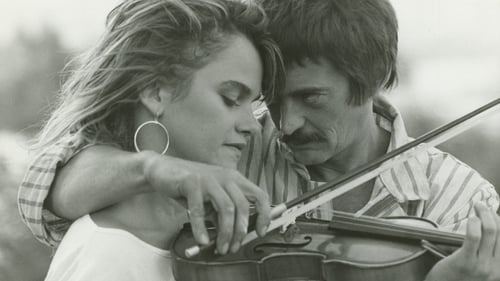
Director
Zoltai is a Hungarian professor who returns home after a visit to the United States. Following a television interview, he commits suicide and leaves a note for his longtime friend Dr. Bardocz. The doctor and Zoltai's colleague Komindi join the police in investigating what drove the man to suicide.

Writer
Сюжет разворачивается в течение одной ночи. Движение сопротивления в период до объявления Израилем своей независимости взяло в заложники британского офицера. Офицер должен быть убит на следующее утро, но его палач не может смириться с убийством.

Director
Two rabbis show the ruins of an abandoned synagogue to a group of primary school-age Jewish children, and stand by as the children dip bread in honey, drink wine, pray, and sing.

Director
Сюжет разворачивается в течение одной ночи. Движение сопротивления в период до объявления Израилем своей независимости взяло в заложники британского офицера. Офицер должен быть убит на следующее утро, но его палач не может смириться с убийством.

Director

Director
The film the was made of OMEGA band's November 1982 concert in the Budapest Sportstadium.

Director

Writer
A historical drama set in the 1400s, a young man sent to Italy but is forced back after his father's mysterious death.

Director
A historical drama set in the 1400s, a young man sent to Italy but is forced back after his father's mysterious death.

Writer
Драма повествует о сложных этапах становления венгерской государственности. Венгерская Советская Республика 1918 года и Вторая мировая война — два исторических излома, два периода бед и надежд.

Director
Драма повествует о сложных этапах становления венгерской государственности. Венгерская Советская Республика 1918 года и Вторая мировая война — два исторических излома, два периода бед и надежд.
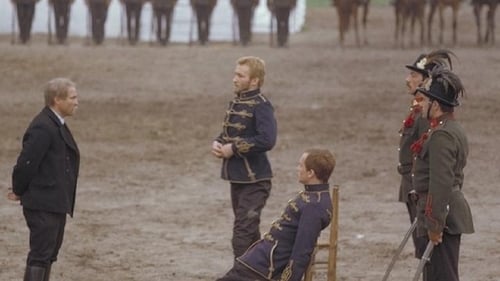
Writer
Первая мировая война. Два сына крупного венгерского землевладельца Жадания отправляются на фронт. Они храбро сражаются и полны желания победить. Но война длится слишком долго, и солдаты больше не хотят воевать. В части, где служат братья, вспыхивает бунт. Старший брат Иштван приказывает расстрелять каждого десятого солдата. Вскоре в Венгрии происходит революция. Но новая власть продержалась недолго. В стране свирепствует террор, и братья принимают в нем активное участие. Но в душе Иштвана происходит переоценка ценностей, он пытается порвать со своим прошлым..

Director
Первая мировая война. Два сына крупного венгерского землевладельца Жадания отправляются на фронт. Они храбро сражаются и полны желания победить. Но война длится слишком долго, и солдаты больше не хотят воевать. В части, где служат братья, вспыхивает бунт. Старший брат Иштван приказывает расстрелять каждого десятого солдата. Вскоре в Венгрии происходит революция. Но новая власть продержалась недолго. В стране свирепствует террор, и братья принимают в нем активное участие. Но в душе Иштвана происходит переоценка ценностей, он пытается порвать со своим прошлым..

Director
An exploration of a decaying synagogue.

Director

Director
Пунктирно прочерченный сюжет лишь намекает на неясный характер конфликта императора и молодого наследника престола, который после неудачного заговора с умыслом устраивает чинную церемонию, затем превращающуюся в «сексуальную заварушку». И именно этот неприличный вызов заставляет власти принять крутые меры против нарушителей устоев общества.

Writer
Пунктирно прочерченный сюжет лишь намекает на неясный характер конфликта императора и молодого наследника престола, который после неудачного заговора с умыслом устраивает чинную церемонию, затем превращающуюся в «сексуальную заварушку». И именно этот неприличный вызов заставляет власти принять крутые меры против нарушителей устоев общества.
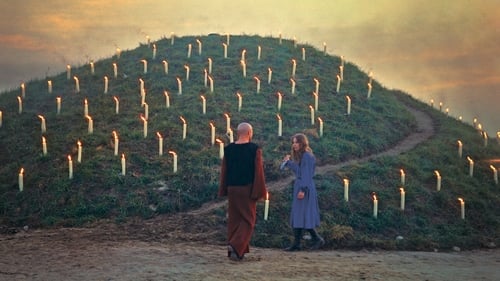
Director
Минуло 15 лет, как убили Агамемнона. Его убийца Эгист отмечает очередную годовщину правления. В устроенный по такому случаю День Правды каждый может сказать Эгисту все, что о нем думает. Но народ безмолвствует. Эгист приказывает говорить правду, а в ответ слышит лишь похвальбы. Бунтовать пытается только Электра, дочь Агамемнона.

Director
In this costume epic, the last days of Julius Caesar are chronicled.

Director
The narrative concerns the barbaric exploits of Attila The Hun and yet none of the characters ever leave the remote seaside stretch of land on which the film is set or do much of anything – with the ensuing moralizing interrupted only by the occasional (and equally obscure) music-infused rites.
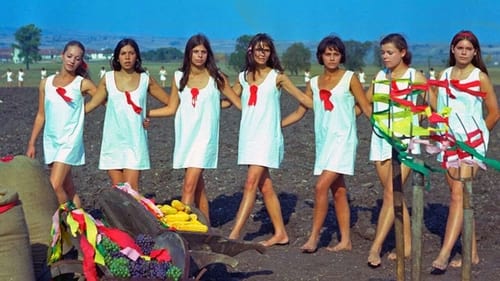
Director
Историческая драма о крестьянском восстании 1888 г. Этот фильм многие специалисты называют творческим пиком Миклоша Янчо. И не случайно, что, несмотря на острейшую конкуренцию, он был отмечен премией МКФ в Канне за режиссуру в 1972 году. «Красный псалом» можно выделить за наиболее последовательное выражение любимой стилистики Миклоша Янчо, сочетающей революционную форму киноязыка и сложнейшие моральные темы, связанные с обществом и революциями.
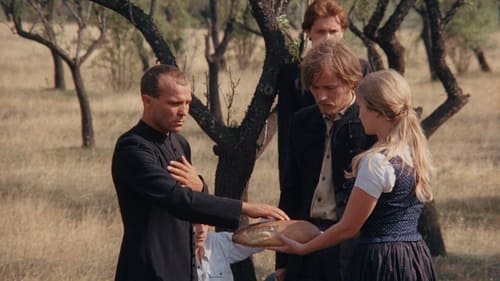
Writer
Фильм о подавлении революции 1919 года и возникновении фашизма в Венгрии. Отряд революционной армии совершает налет на деревню, оставив в живых только священника, который решается жестоко отомстить убийцам...

Director
Фильм о подавлении революции 1919 года и возникновении фашизма в Венгрии. Отряд революционной армии совершает налет на деревню, оставив в живых только священника, который решается жестоко отомстить убийцам...
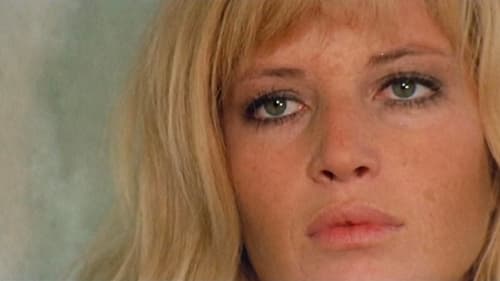
Director
Barbara (Monica Vitti) is a journalist investigating the local counterculture who becomes involved, after an unpleasant start of battery and stalking, with Pierre Clémenti's louche all-around dropout.

Writer
The preparation, in Hungary, of the assassination in Marseilles of King Alexander of Yugoslavia in 1934.

Director
The preparation, in Hungary, of the assassination in Marseilles of King Alexander of Yugoslavia in 1934.
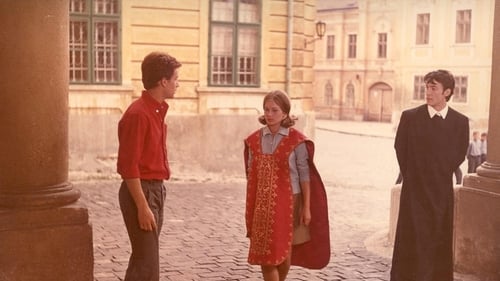
Director
Paralleling the dramatic student protests and riots that were exploding across the world in the 1960s at the time the film was made, The Confrontation is a story of protest and rebellion in 1947 Hungary when the Communist Party have just taken power. Jancsó's first colour film is another virtuoso display by a director at the peak of his powers, and eloquently explores the complex issues and inherent problems of revolutionary democracy.

Writer
Paralleling the dramatic student protests and riots that were exploding across the world in the 1960s at the time the film was made, The Confrontation is a story of protest and rebellion in 1947 Hungary when the Communist Party have just taken power. Jancsó's first colour film is another virtuoso display by a director at the peak of his powers, and eloquently explores the complex issues and inherent problems of revolutionary democracy.

Director
Inspired by Giovanni Boccaccio's 14th-century collection of novellas known as The Decameron, this innovative film combines short works from seven directors who set out to interpret Boccaccio's masterwork for the modern age. The result is an assortment of titillating tales ranging from the erotic to the tragic.

Writer
Осень 1919 года. Венгерская Социалистическая революция пала под натиском хортистской армии. Остатки сопротивления жестоко подавляются. Действие фильма происходит на хуторе, затерянном в степи.

Director
Осень 1919 года. Венгерская Социалистическая революция пала под натиском хортистской армии. Остатки сопротивления жестоко подавляются. Действие фильма происходит на хуторе, затерянном в степи.
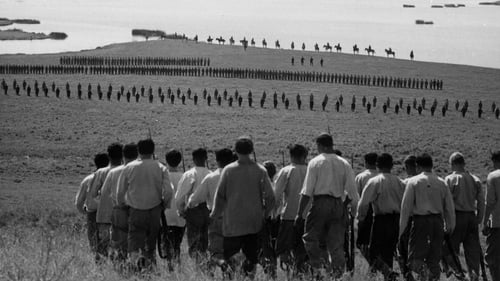
Writer
Об участии венгерских красногвардейцев в гражданской войне в России. Разбит один из венгерских отрядов. Молодому бойцу Ласло удается бежать в монастырь, где расположились венгры. Но врывается отряд белых и расстреливает борцов за революцию. Однако татарину Чингизу, венграм Ласло и Андрашу, а также русскому матросу удается вырваться за пределы города…

Director
Об участии венгерских красногвардейцев в гражданской войне в России. Разбит один из венгерских отрядов. Молодому бойцу Ласло удается бежать в монастырь, где расположились венгры. Но врывается отряд белых и расстреливает борцов за революцию. Однако татарину Чингизу, венграм Ласло и Андрашу, а также русскому матросу удается вырваться за пределы города…

Director

Director
В Венгрии конца 60-х годов XIX века подавлено национальное движение под предводительством Кошута. Восстановлено господство Австрии, но партизанская война продолжается. Чтобы окончательно уничтожить повстанцев, австрийская армия окружает большую группу подозреваемых и заключает ее в неприступный форт. Предполагается, что среди заключенных находятся и лидеры повстанческого движения, но опознать их никак не удается. И тогда к части заключенных применяются самые вероломные формы насилия для получения необходимой информации…

Director
Весна 1945 года. В последние дни освобождения Венгрии встретились русский солдат Коля и пленный венгр-гимназист Йошка. Дружба с Колей помогла Йошке правильно понять и оценить происходящие события.

Director
Two old men enter an abandoned synagogue, look at the decay around them, and pray.
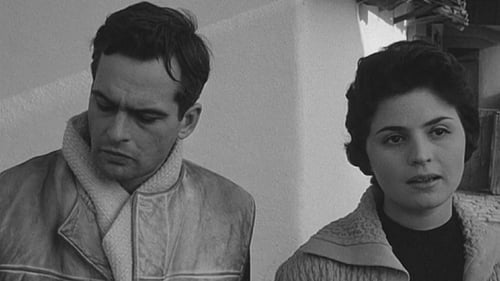
Screenplay
Фильм повествует о нескольких днях из жизни доктора Ярома. Иллюстрация нравственного кризиса героя, который к 32 годам оказался в полном внутреннем одиночестве и растерянности. Чтобы найти ответы на мучающие его вопросы, он отправляется в деревню, откуда он родом. В окружении старика-отца, старшего брата и бывшей возлюбленной, которую он предал, Яром пытается переосмыслить свою жизнь.

Director
Фильм повествует о нескольких днях из жизни доктора Ярома. Иллюстрация нравственного кризиса героя, который к 32 годам оказался в полном внутреннем одиночестве и растерянности. Чтобы найти ответы на мучающие его вопросы, он отправляется в деревню, откуда он родом. В окружении старика-отца, старшего брата и бывшей возлюбленной, которую он предал, Яром пытается переосмыслить свою жизнь.

Director
Still photographs and narration give an overview of the history of the American Indian.

Director
В фильме три новеллы. Первая — о стойкости и мужестве рабочих военного завода, которые накануне вступления советских войск в Венгрию объявили забастовку. Вторая — о трех советских воинах, которые во время боя попали в крестьянскую избу, где больная женщина просила привести священника, чтобы он окрестил ее новорожденного. Воины выполнили просьбу женщины, чем заслужили ее благодарность. Уходя, они оставили мальчику на память три звездочки со своих головных уборов. Третья — о том, как советские войска, заняв один из венгерских городков, спасли жизнь большому количеству людей, скрывавшихся от зверств фашистов в одном из подземелий.

Director
Первый художественный фильм режиссёра Миклоша Янчо не содержал в себе каких-либо признаков, которые позже стали неотъемлемыми для знаменитого "стиля Янчо". Он обращен к антифашистской теме, взятой в нравственном аспекте. В фильме рассказана история группы подростков, которые были призваны на фронт в последние недели Второй мировой войны и нашли убежище на небольшом острове.

Director
Короткометражный документальный фильм, в котором продемонстрировано торжество культуры и древних традиций курортного местечка Бадачонь, а также развлекательное повествование с некоторыми интересными кадрами природы и другими подробностями об этом районе.

Director
Ранняя короткометражка Миклоша Янчо является пропагандистской лентой из мира сельскохозяйственного производства.

Director
Одна из ранних работ выдающегося венгерского режиссёра Миклоша Янчо, снятая им в содружестве с Иштваном Дьёрдем. Документальный кинорепортаж о пребывании в Венгрии советской сельскохозяйственной делегации.

Writer
Одна из самых ранних работ выдающегося венгерского режиссёра Миклоша Янчо снята им в соавторстве с Дежё Коза и Дьюлой Месарош как документальная короткометражка, посвящённая пропаганде строительства социализма в Венгрии.

Director
Одна из самых ранних работ выдающегося венгерского режиссёра Миклоша Янчо снята им в соавторстве с Дежё Коза и Дьюлой Месарош как документальная короткометражка, посвящённая пропаганде строительства социализма в Венгрии.

Director
Хроника празднования 1 мая. Миклош Янчо показывает, как будапештцы отмечают «самый важный праздник рабочего класса».




















